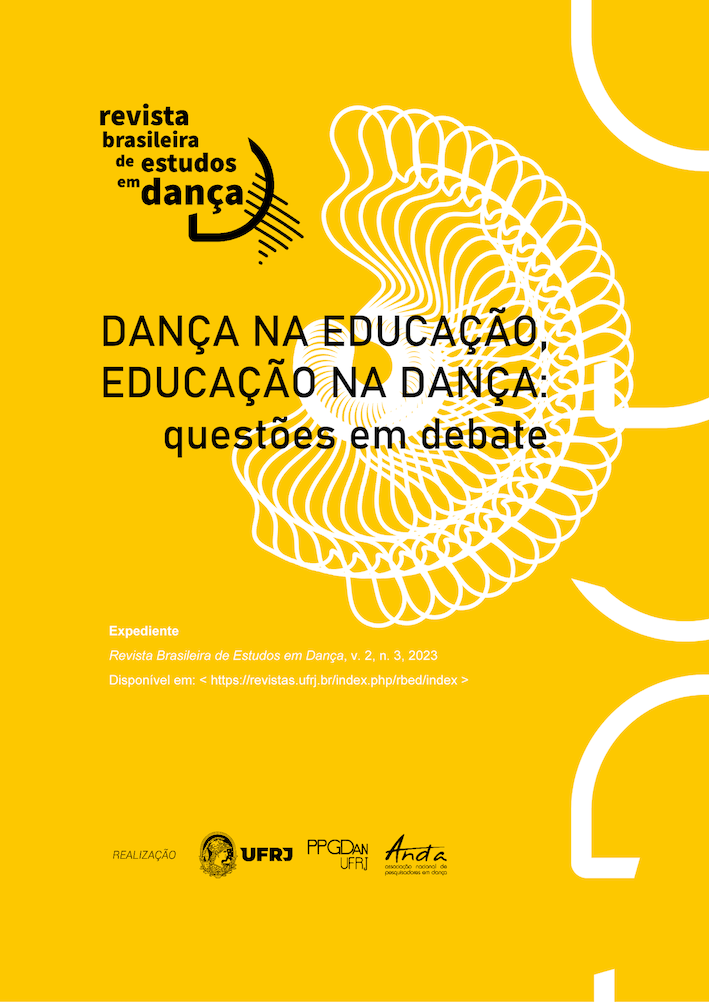The educational processes in dance and pedagogical practices
incongruities between dance and education
DOI:
https://doi.org/10.58786/rbed.2023.v1.n3.53947Keywords:
Dança, Educação, Pedagogização, Corpos dóceis.Abstract
This article aims to present the results of a cartography of dance in the school context. The goal of this study was to discuss the pedagogical practices of teaching dance in the early years of elementary school in three public schools in the city of Betim/MG. The main reference points were the reflections of the philosophers Michel Foucault (1998) and Gilles Deleuze (2007). This study used the cartographic method by means of a logbook with the experimentations of an artist-teacher-cartographer during the period from 2017 to 2019, as well as the analysis of an archive of academic journals with CAPES A1 and A2 qualification, in the areas of Arts, Education and Physical Education. In this cartography it was possible to identify that the way dance is taught contributes to a mechanization and pedagogization of dance education and the formation of docile bodies
Downloads
Published
Versions
- 2024-05-09 (3)
- 2023-12-01 (2)
- 2023-09-02 (1)
How to Cite
Issue
Section
License
Authors who publish in the Revista Brasileira de Estudos em Dança are
responsible for the content of signed articles and retain copyright.
They grant the journal the right of first publication with the work simultaneously
licensed under the Creative Commons Attribution-NonCommercial 4.0 License
(Open Archives Initiative - OAI). This feature, used for open-access journals,
allows sharing work for non-commercial purposes and acknowledges
authorship. If the text is later published in another vehicle, the author
must inform that it was initially published as an article in the Revista Brasileira
de Estudos em Dança. Therefore, even if the journal owns the first publication,
authors are entitled to publish their work in institutional repositories or on
their personal pages, even if the editorial process has not been completed.
The journal reserves the right to make normative, orthographic, and grammatical changes to maintain the language standard, respecting the authorial style.

